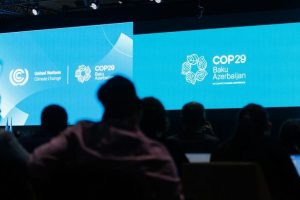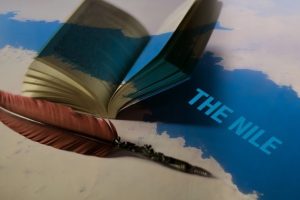BY FITSUM GETACHEW
Every year when it ends there is always the tendency to look back and see what has been achieved and what has failed and when it comes to governments or countries it is even more complex than what individuals may do. At the beginning of every year it is usual to make resolutions of New Year or pledges that we all commit to fulfilling. The land mark of the New Year prepares the ground to make changes and improve what has not been fulfilled during the just ended year. Likewise, Ethiopia has had positive sides as well as not so positive ones because things may not have gone as anticipated or desired or unpredicted events took place.
In any case, we can conclude that 2022 has been a very significant year for Ethiopia. The most outstanding event of the year is probably the reaching of the Pretoria Deal with the TPLF that practically ended the two- year old hostilities and violence in the north even if many critics say there may still remain even more challenging times of putting the words into practice. Many refer to the saying ‘the devil is in the details’ but for Ethiopians the fact that there has been a peace arrangement and this has completely changed the image of the country vis a vis the entire world is a huge victory.
As soon as the peace deal was signed what the premier announced was that it was ‘a huge victory for Ethiopia’ irrespective of which side one could be. It is the country Ethiopia that resulted victorious to the disappointment of all those who were arguing that the country would be ‘balkanized’ and there would be several weak states instead of one united country that is capable of raising the standard of living of its citizens to a new high if unity is guaranteed and peace is assured.
We all know how much the two year war between the Federal government and TPLF cost the country’s resources and how the economy had to suffer due to the shift of attention from the economic projects and programs to safeguarding the sovereignty and integrity of the nation. It was priority number one and practically every attention was directed to find a solution to the problem in the north. In the meantime only a part of the attention to other issues of the country was addressed. Particularly regional states such as Amhara and Afar were the ones that were in the frontline of the hostilities and suffered more than any other part of Ethiopia beside Tigray region which was practically run by TPLF.
The consequences of the conflict in the north had international implications as well because many of Ethiopia’s traditional allies took a stand that was not palatable to the interests of Ethiopia. Even international organisations such as the UN were not very friendly with Ethiopia because they did not fully acknowledge the real facts regarding the conflict in the north and only after the peace deal of Pretoria did things begin to turn Ethiopia’s way. In fact Ethiopia resulted victorious because it once again regained its international status and it managed to solve its internal problem with internal means and only the African Union envoys were allowed to take part in the negotiations and help prepare the terms of the pact.
So Ethiopia avoided the imposition of the terms of outside countries and avoided the blackmail of certain countries who wanted to dictate the terms of the peace deal. For a sovereign country such as Ethiopia, with a history of rejection to any form of colonialism or dominion, the Pretoria Peace Deal was considered as another victory and this can be taken as one of the most important stories of the year 2022.
The year 2022 was also the year in which the all-inclusive National Dialogue Commission was first formed and launched with the members and commissioners selected and assigned with their respective tasks. The terms of this national dialogue have been described to the nation inviting all parties to take part in the discussions. In fact many believe this commission is the hope of the country’s future so that all outstanding issues in the country would be faced and resolved. There will be no one interest group left out of this extensive discussion because as the commissioners explained efforts will be made to include every one and hear their point of view within the frame work of the constitution and the laws of the country.
There will be no limits of expression of ideas and healthy discussions would be staged until a sort of consensus is reached. There will be time to distinguish facts from opinions and activists’ propaganda and preaching from the actual facts on the ground. History will be distinguished from the current reality and there will be no attempt to score points based on history. Like in any other country, it is admitted that Ethiopia as well has passed several epochs of wars, conflicts and violence in various parts of the country under the leadership of this one or that one from this ethnic group or that one. But this actually belongs to history and what we need to do is admit those events and the errors if any because it is also easy to see errors with the benefit of hindsight. But there should be the realization that there can be no fair judgment with the parameters or standards of today.
Facts that belong to a hundred years ago or even further in the past cannot be judged with the standards of today and that is what has happened in all other countries when new states have been formed. We can refer to the history of many European or American countries and the way they settled their nations is by coming to terms with the past no matter how unjust and violent they were against this nationality or that one. The scars of history might remain but they should not be allowed to disrupt the lives of the current generation who have nothing to do with the events of a hundred years ago or even further back in time.
History is full of such episodes in every country but it should not be a factor that determines the lives of millions today. There is no doubt that the past belongs to the past and should only serve to teach us not to commit the same errors like in the past. The age of imperialism has come to terminate and now all peoples should be allowed to enjoy their freedom and equality in any circumstance. If we do not learn from the past errors and miscalculations, injustices and sufferings we are condemned to repeat them and the sufferings will continue even today. We will not be able to plan the future and do what is necessary to grow economically and reach where others have reached.
Nationalism may still be a key issue in every country where there are multiple nations or groups of people with their own natural features such as language, customs and beliefs but that has not prevented them from living together with others in equality and reciprocal respect. That is what the national dialogue commission is trying to do in preparing the platform to bring forward every idea and proposition that would help create a multinational country living in equality and justice.
Another huge success the year 2022 recorded has been the third filling of the GERD, the Grand Ethiopian Renaissance Dam with the Nile water and the continuation of Ethiopia’s programs regarding this huge flagship project according to its plan. Ethiopians have continued to rally behind this major project because the Grand Dam is not only about generating electricity to light the houses of millions or any other benefits the project may deliver but because it is a question of sovereignty and national pride because the country of the origin of the Nile water cannot be deprived of its benefits on the basis of antiquated and colonialist pacts to which Ethiopia never gave recognition. The GERD is considered as a symbol of Ethiopia’s renaissance and the year 2022 has been one step nearer to that objective.
There have been however huge challenges in the year 2022 that Ethiopians had to face. The issue of economic growth and inflationary tendencies that have been exacerbated by various factors that come from abroad is one. Admittedly inflation has become a key challenge for the entire world, but for countries such as Ethiopia with a fragile economic structure, the pain is deeper. Imported inflation has been even more painful to us because of excessive rises in prices of food, fuel and all imported goods such as electronic gadgets and pharmaceuticals with our foreign currency reserves suffering the consequences. Even if
food imports have been prospected to be limited or altogether stopped with the new irrigation projects of cultivating millions of quintals of wheat and thus stop dependency on imported wheat, it will inevitably take some time before this reality touches ground. The prospects however are definitely encouraging.
The inflationary tendencies have been hitting most the most vulnerable parts of society who have minimum resources to make ends meet even under normal circumstances and throughout the year the challenge has continued even in the face of every effort the government exerts to stop the trend. It has been trying to implement major economic measures to reduce inflation and there have been some macroeconomic measures adopted by the government. A special economic commission was formed to supervise over this particular issue and bring to a halt some of the inflationary tendencies that are artificially created by certain operators in the economy.
Another big challenge of the year has been the one that refers to the security of the nation in several parts of the country. There have been major counter operations carried out against terrorists here and there and in particular the attempt by the Al- Shabaab to penetrate Ethiopia and create havoc was halted by the security operatives of Ethiopia. Hence worse scenarios have been avoided but there are reports that the security situation in some parts of Oromia is still a major challenge to the country because there have been repeated raids of so called Shene terrorizing innocent civilians residing there for years.
The Ethiopian Human Rights Commission has presented various reports on these violent acts and the casualties that have raised the outrage of many. There are calls for more determined and expanded action against these violent forces that do not abide by the rules of any warfare. The Ethiopian government says these are people without real and homogeneous leadership, no plans and objectives and cannot be taken as a group that fights for the rights of peoples as they claim. Many have been suggesting the government should prepare the grounds for peace talks just as it did with the TPLF, but the issue is no one knows who the real leaders of this group are and there cannot be any hope of peace talks until there are the terms that can facilitate such an event.
In principle, the Ethiopian government has repeatedly stated that it does not exclude peace negotiations with any group that is ready to disarm and sit down to talk within the framework of the laws of the land just as TPLF has finally done. Everybody hopes the year 2023 will be one that will see the security problems of the country resolved and the economic trajectory resumes its course with Ethiopia gaining its usual position in Africa and the world.
The Ethiopian Herald December 29/2022





